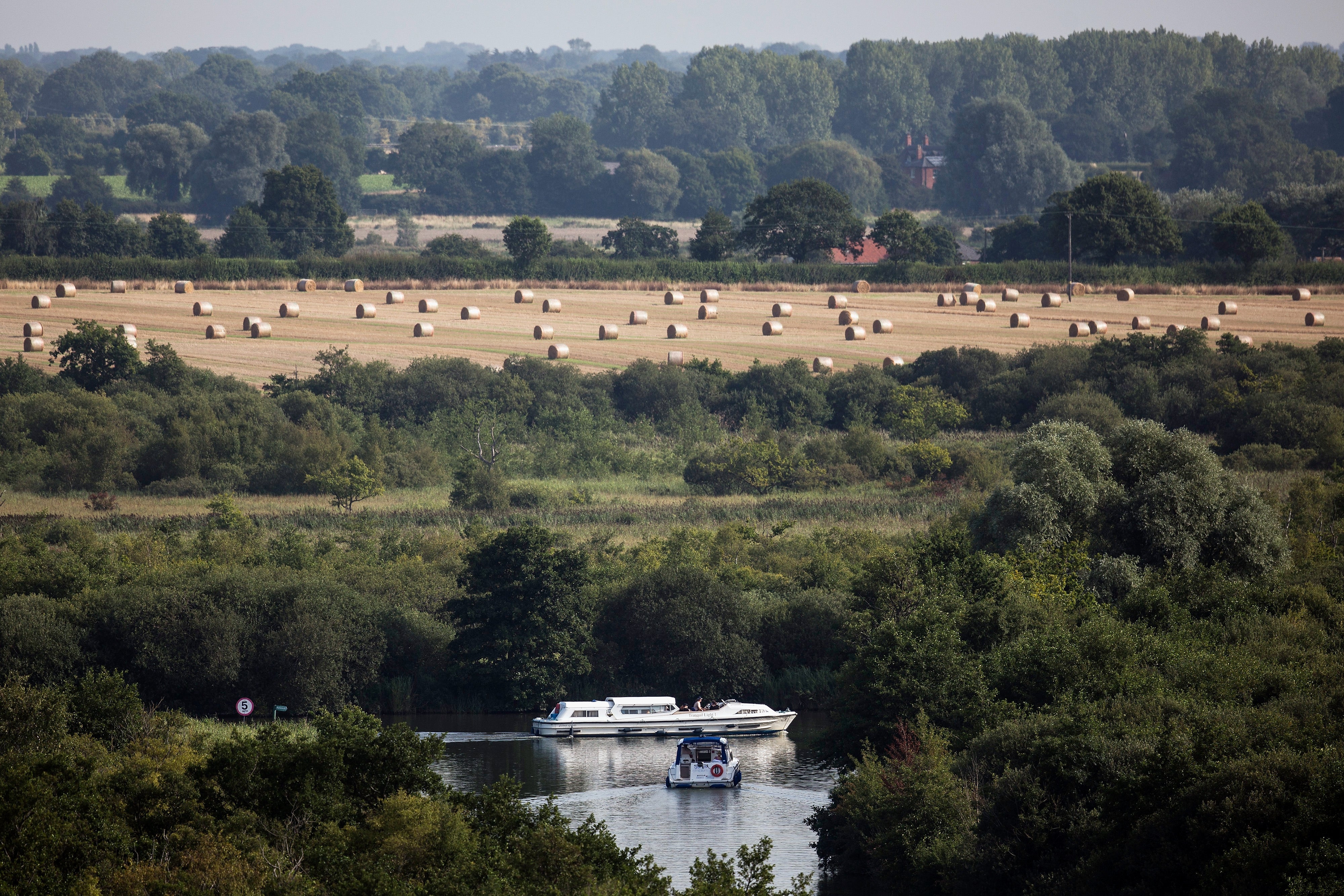Government growth proposals part of ‘millennia-long trend’ of encroaching on nature, says Sir Partha Dasgupta
Exclusive: Sir Partha Dasgupta said he had not yet seen the change in approach to economics needed if we are to reverse biodiversity loss and enhance prosperity

Recent proposals to spur growth in the UK are part of a thousands-year old trend of encroaching on the environment in pursuit of economic gain, according to the author of a landmark review into the economics of biodiversity.
Sir Partha Dasgupta said he wasn’t surprised by government proposals to repeal European environment laws, liberalise planning processes in new “investment zones,” and plans to review a scheme designed to pay farmers for enhancing nature.
“But it’s very unfortunate,” he said, adding that when economies are under pressure the trend has been for environmental laws to be loosened.
“The issue for me is not so much whether this government is trashing [the environment] more than others,” he said. “We have been trashing [it] for a thousand years in some sense.”
Conservationists have said a series of policies announced by the government in recent days amount to an “attack on nature.”
First came the publication of legislation last Thursday that aims to axe remaining European laws, including hundreds that protect the environment. These include the Habitats Regulations that protect millions of hectares of the UK’s wildlife from unsustainable development from the New Forest to the Norfolk Broads and safeguards threatened species.
Then came the mini-Budget on Friday which set out plans “releasing land” to create new “investment zones” in England where planning rules will be “liberalised” and “streamlined.”
And finally came reports that the government was planning to review, or even scrap, a scheme that would pay farmers to deliver clean water and air, thriving plants and wildlife and beauty and heritage. The government confirmed to The Independent that it plans to review the Environment Land Management Scheme but was not scrapping it.
“What’s happened in the last week is a whole barrage of different actions that taken together make us feel really concerned and amount to an attack on our nature frameworks and our nature ambition,” said Katie-Jo Luxton, executive director of global conservation at the Royal Society for the Protection of Birds.
Conservationists said they had been optimistic when the Conservatives came to power in 2019 and the then Prime Minister Boris Johnson pledged to make the country the “cleanest, greenest” on earth, with the most far-reaching environmental programme.

The government pledged to put nature and biodiversity on a road to recovery by 2030, committing internationally to protect 30 per cent of the UK’s land and ocean by the end of the decade. They also passed an environmental act pledging legally-binding targets for nature recovery.
“The mechanisms to deliver that are all the things that came under attack this week,” said Ms Luxton. “We don’t see without a really clear plan that the government has a hope in hell of meeting those really ambitious targets.”
Patrick Begg, a director at the National Trust, said there is a risk the government is going into “reverse gear” on some of its pioneering ambitions.
“When you start to accumulate all these different announcements and plans which seem to be setting growth versus nature and climate, none of us should really accept that false trade-off,” he told The Independent. “It absolutely is the case that we need and can do these in harmony - the government had set us on that path and it would be very worrying if we were starting to reverse back down it.”
Ms Luxton, of the RSPB, said there seems to be a view that the environment is the constraint to growth, and yet there has been no significant evidence that environmental legislation holds back growth. She pointed to a government report published in 2010 that found that “no survey has found large negative effects of environmental regulation on overall productivity, either in the short or in the long run.”
Last year Sir Partha authored the Dasgupta Review, commissioned by the Treasury, which looked into the economics of biodiversity – how the world can find value in nature instead of profiting from its destruction.
It found that a “fundamental change” in how we think about and approach economics is needed if we are to reverse biodiversity loss and protect and enhance our prosperity.

Speaking to The Independent on Monday, Sir Partha said he has yet to see this change. He said that while encroaching on ecosystems in Britain would not put the UK economy at risk it could undermine global efforts to protect biodiversity.
“The issue is whether we take part in a global attempt at stemming biodiversity loss,” he said, adding that not protecting biodiversity at home makes it difficult to advocate to other nations that they should protect their natural environments. “We need to bear in mind that these are very valuable assets globally.”
Kwasi Kwarteng told the BBC on Sunday that the government was “not going to relax environmental rules” but was trying to speed up the planning process of getting consents to facilite growth.
A government spokesperson said: “Claims we intend to go back on our commitment to the environment are simply not right.
“A strong environment and a strong economy go hand-in-hand. We have legislated through the Environment Act and will continue to improve our regulations and wildlife laws in line with our ambitious vision.
"Bureaucratic processes in the planning system do not necessarily protect the environment.”
A spokesperson said the government’s growth plan would support farmers to strengthen UK food security and would work alongside the environmental land management schemes to reinforce that.
“We will set out our plans later this autumn.”
Join our commenting forum
Join thought-provoking conversations, follow other Independent readers and see their replies
Comments

Bookmark popover
Removed from bookmarks